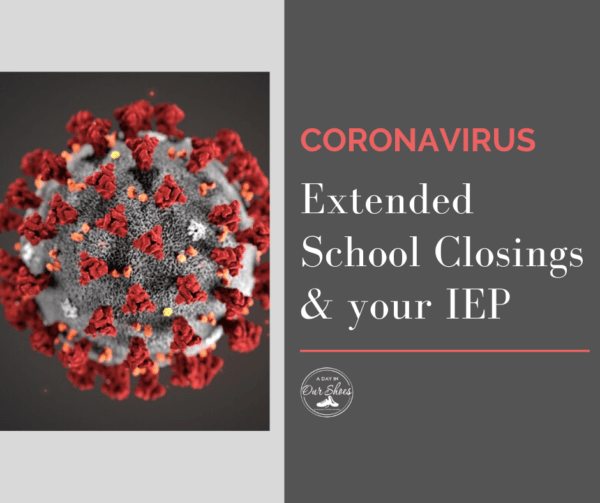Today’s "Ask an Advocate" question:
"I get so overwhelmed when it’s IEP time. I feel like I’m signing hundreds of things and I don’t know what is important. What should I be focusing on?"
This answer is just my opinion: If I had to focus on one area of the IEP, it would be Present Levels of Performance (PLOP) and, in particular, the Parental Concerns portion of PLOP.
Here’s why I think so. The PLOP section of the IEP is really what drives the IEP. It is the documentation of all the areas of strength and needs. It also contains the parental concerns. Everything AFTER the PLOP should go back to the PLOP. If in the PLOP, there’s a need documented, it should be addressed in the IEP.
In my experience, schools are getting better at putting much more thorough PLOP documentation. Just a few years ago I had seen things like, “He is doing well this year and has some friends but needs to work on social skills.” And that was it! Now I am seeing entire RRs copied and pasted into the PLOP section.
A thorough PLOP section should contain just about EVERYTHING about the child. All their recent test scores, grades, performance, assessments, discipline synopses and more. If it was an RR year, I’m OK with putting something like “see attached RR” for some of it, but that doesn’t get them entirely off the hook. In my opinion, each teacher and related service should provide a brief synopsis about the past year, accomplishments and things to work on in the coming year.
The Present Levels of Performance also contains the Parental Concerns. This is your time! As always, you want to appear reasonable, so don’t write a 50-page manifesto. But take as much time and space as you need to say your concerns about your child. Be specific, offer examples. Start and end with their strengths. Don’t let a school tell you that they can’t or won’t or don’t include FULL parent concerns on an IEP. It absolutely is your right to have them put on the IEP. If you push back and they still refuse, fine; copy and paste them onto the NOREP when you send it in and file an OCR complaint.
Parent participation in the IEP process is one of the six fundamental principles of special education. You know your child better than anyone. You are entitled by law to have meaningful and equal participation in the process, and they must include your concerns. Ideally, the process looks like this:
- You keep a running journal of concerns all year long. Of course, if there is important stuff, tell them immediately. But if it can wait, just log it.
- You get your IEP meeting invitation with 10 days’ notice, as prescribed by law.
- When you get that invitation, you formalize your concerns in a written document or letter and submit it with your RSVP to the meeting.
- Your concerns are included as discussion during the meeting.
- It should be documented that they entertained your every concern, and list either what they are doing to address it or reasons why they are not addressing it. Yes, really.
That is what it is supposed to look like and that is why many schools resist putting all the parent concerns in the PLOP section. If it’s in there listed as a need, it has to be addressed.
To sum up, when you read that Present Levels of Performance section, you should finish reading it and be able to say, “Yes, this accurately and completely describes my child.” Again, all the strengths and areas of need are listed here, so it is what drives the IEP goals, SDIs, possible additional evaluations and related services.
I also find that the Parental Concerns portion of the PLOP section is one of the most underutilized and unknown parts of the IEP process, so spread the word. This is important!
Lisa Lightner is a Chester County, PA mom of two. This post was adapted from the blog A Day in Our Shoes, which she co-authors. It provides support, resources and advocacy services for parents of children with special needs. 






